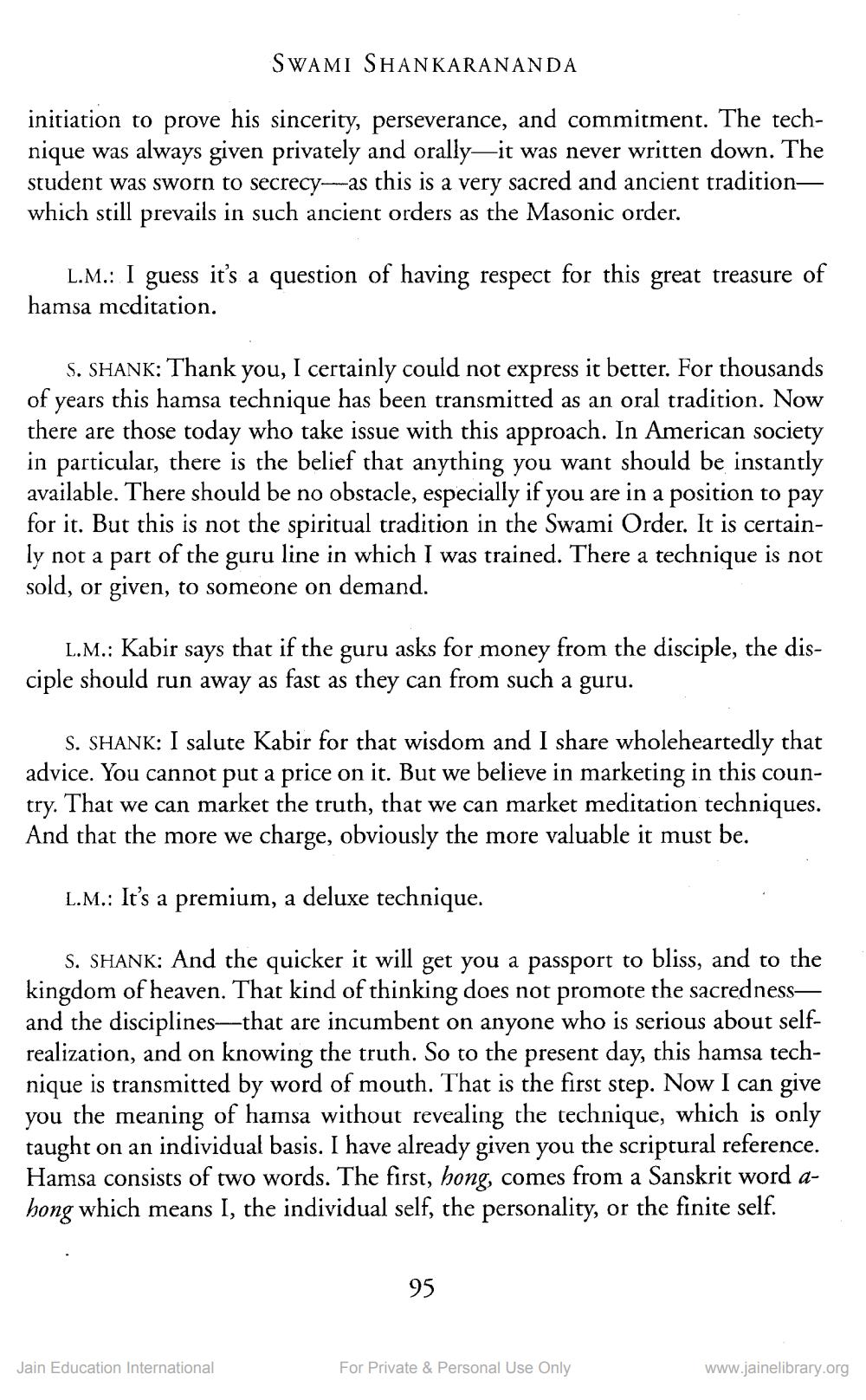________________
SWAMI SHANKARANANDA
initiation to prove his sincerity, perseverance, and commitment. The technique was always given privately and orally-it was never written down. The student was sworn to secrecy-as this is a very sacred and ancient traditionwhich still prevails in such ancient orders as the Masonic order.
L.M. I guess it's a question of having respect for this great treasure of hamsa meditation.
S. SHANK: Thank you, I certainly could not express it better. For thousands of years this hamsa technique has been transmitted as an oral tradition. Now there are those today who take issue with this approach. In American society in particular, there is the belief that anything you want should be instantly available. There should be no obstacle, especially if you are in a position to pay for it. But this is not the spiritual tradition in the Swami Order. It is certainly not a part of the guru line in which I was trained. There a technique is not sold, or given, to someone on demand.
L.M.: Kabir says that if the guru asks for money from the disciple, the disciple should run away as fast as they can from such a guru.
S. SHANK: I salute Kabir for that wisdom and I share wholeheartedly that advice. You cannot put a price on it. But we believe in marketing in this country. That we can market the truth, that we can market meditation techniques. And that the more we charge, obviously the more valuable it must be.
L.M.: It's a premium, a deluxe technique.
S. SHANK: And the quicker it will get you a passport to bliss, and to the kingdom of heaven. That kind of thinking does not promote the sacredness— and the disciplines-that are incumbent on anyone who is serious about selfrealization, and on knowing the truth. So to the present day, this hamsa technique is transmitted by word of mouth. That is the first step. Now I can give you the meaning of hamsa without revealing the technique, which is only taught on an individual basis. I have already given you the scriptural reference. Hamsa consists of two words. The first, hong, comes from a Sanskrit word ahong which means I, the individual self, the personality, or the finite self.
Jain Education International
95
For Private & Personal Use Only
www.jainelibrary.org




